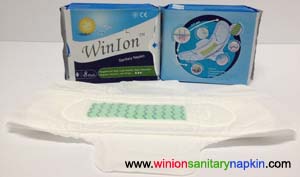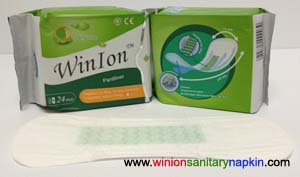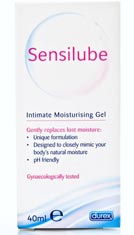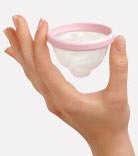Feminine Hygiene And Feminine Hygiene Product
Feminine hygiene
Feminine hygiene is a general term used to describe women personal care products, especially used by women during menstruation, vaginal discharge, and other bodily functions related to the vulva. Example of feminine hygiene products such sanitary napkins (American English) / Sanitary Towels (British English), pantyliners, tampons, menstrual cups, and feminine wipes. All of these are the major categories of feminine hygiene products.
Feminine hygiene is the practice of a women to keep her body healthy and clean, especially their private areas. The requirements for maintaining personal hygiene are somewhat different for women and men. Women's personal hygiene (or call as feminine hygiene) is more complex in that special care must be taken to prevent problems associated with the menstrual period, yeast infection and urinary tract infections. To learn the nature of women's personal hygiene (or feminine hygiene) problems allows you to detect symptoms sooner and maintain optimal cleanliness.
While men and women share many of the same hygiene practices, certain aspects pertain to women only. Feminine hygiene problems that are unique to women involve dealing with menstruation, vaginal odor, yeast infections and urinary tract infections. Issues affecting both men and women include maintaining good oral hygiene, preventing body odor and keeping the hair and nails clean and well-groomed.
The main cause of women's personal hygiene problems (or feminine hygiene) is ignorance of the methods required to maintain cleanliness. A person's cultural traditions, upbringing and personal habits also play a role in determining overall hygiene standards.
Health-related conditions like heavy perspiration and menstrual bleeding can increase odor and other problems. Failure to wash underwear and change pads and tampons regularly may also affect a woman's hygiene.
Awareness about the correct methods for maintaining cleanliness is the best way to prevent feminine hygiene problems. Bathe at least two times per day during summer and three times per week during winter. Remember to thoroughly wash the vagina and surrounding areas by using mild soap and water. Remember to change pads, tampons and other feminine hygiene products every 4-8 hours. Wear cotton underwear with a white crotch to prevent urinary tract infection, and remove wet clothes and swimwear promptly. If you're prone to urinary tract infections, it may be helpful to wash the vaginal area immediately after sex to take care of your feminine hygiene.
Many feminine hygiene products contain harsh dyes and perfumes that can irritate the vagina and cause infection. To reduce these risks, choose unscented pads, pantyliners and tampons.
Four Ways To Maintain Your Feminine Hygiene
- Remember to clean your feminine area daily with a mild soap and warm water. You are encourage to clean your private area with your clean soapy hand will eliminate the risk of introducing bacteria from a washcloth into your vagina. If you are comfortable doing so. Otherwise, use a fresh washcloth every time you cleanse your feminine area. This is the important things to do daily to take care your feminine hygiene. Your vagina's natural cleansing process produces a clear or white discharge that removes bacteria. Washing with regular soap and water daily helps remove the discharge from the skin and cleanses the outside of the vagina. Products such as douches and scented washes are not good for your vagina, as they remove healthy bacteria and unbalance natural pH levels. Avoid these products, as they can cause irritation, abnormal discharge, and recurrent infection. Also, after a bowel movement, wipe from front to back to avoid transferring anal bacteria to the vagina.
- Shower or bathe every day to ensure your personal hygiene. Your feminine areas sweat just like the rest of you, it is very important to wash away any sweat or dirt that may have gathered at your private part. Always cleanse your feminine areas after any kind of sexual contact with your love one, even if it was only touching or oral contact. This will reduce your risk of infection in your vagina as well as your urinary tract.
- Change your sanitary pads or tampons often during your menstrual cycle. Wearing the same pad for an extended period or leaving a tampon in too long greatly increases your chance of vaginal infection. Try to develop a good behavior to change your tampon or pad often, this will able to reduce any chance of developing an odor and vaginal infection.
- Respect your body's ability to cleanse itself. A woman's vagina will clean itself out daily with natural discharge. Using additional chemicals or products can disrupt this natural process. Avoid to use additional chemical.
Please visit "Menstrual Product" to know more about feminine hygiene product during menstruation.
Feminine Hygiene Products
Following is the common feminine hygiene products for a women. Feminine hygiene products including sanitary towels/pads/napkins, pantyliner/pantiliner, tampons, mentrual cups, wipes, soap free wash and vaginal moisturizer. Please refer to following picture for the said feminine hygiene products.

Sanitary Napkin / Pad

Pantyliner / Pantiliner

Tampon

Cleansing Wipes

Soap Free Wash

Vaginal Moisturiser

Menstrual Cup

Disposable Menstrual Cups
You may have noticed that the "feminine hygiene" aisle at your drug or grocery store is offering an expanding choice of products that serve a variety of purposes.
A recent survey conducted by Harris Interactive® for the Vagisil Women's Health CenterSM (VWHC) revealed that nearly half (47 percent) of U.S. women aged 18 and older use feminine hygiene products, such as cleansing wipes, washes, powders, douches, anti-itch products, yeast infection medications, vaginal lubricants and vaginal moisturizers. Almost one in four women (24 percent) use products to cleanse the feminine area or to absorb excess discharge, and one in six use feminine health products to treat or ease itching.